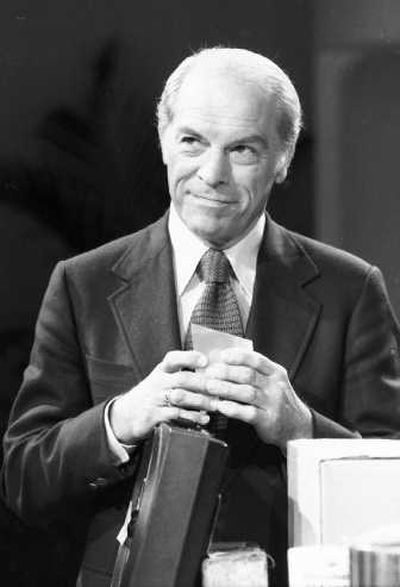Don ‘Mr. Wizard’ Herbert, 89, dies

LOS ANGELES – Don Herbert, who explained the wonderful world of science to millions of young baby boomers on television in the 1950s and ‘60s as “Mr. Wizard” and did the same for a later generation of youngsters on the Nickelodeon cable TV channel in the 1980s, died Tuesday. He was 89.
Herbert died at his home in Bell Canyon after a long battle with multiple myeloma, said Tom Nikosey, Herbert’s son-in-law.
A low-key, avuncular presence who wore a white dress shirt with the sleeves rolled up and a tie, Herbert launched his weekly half-hour science show for children on NBC in 1951.
Broadcast live from Chicago on Saturdays the first few years and then from New York, “Watch Mr. Wizard” ran for 14 years.
Herbert used basic experiments to teach scientific principles to his TV audience via an in-studio guest boy or girl who assisted in the experiments.
By 1955, there were some 5,000 Mr. Wizard Science Clubs across the U.S., with more than 100,000 members. And as “Mr. Wizard,” Herbert was featured in an array of magazines, including TV Guide, Life, Time, Newsweek, Science Digest, Boy’s Life and even Glamour.
In explaining how he brought a sense of wonder to elementary scientific experiments, Herbert said in a 2004 interview with the New York Times that he “would perform the trick, as it were, to hook the kids, and then explain the science later.”
“We thought we needed it to seem like magic to hook the audience, but then we realized that viewers would be engaged with just a simple scientific question, like, why do birds fly and not humans? A lot of scientists criticized us for using the words ‘magic’ and ‘mystery’ in the show’s subtitle, but they came around eventually.”
“Watch Mr. Wizard” garnered numerous honors, including a Peabody Award, four Ohio State Awards and the Thomas Alva Edison Foundation Award for “Best Science TV Program for Youth.”
And Herbert had a lasting impact.
“Over the years, Don has been personally responsible for more people going into the sciences than any other single person in this country,” George Tressel, a National Science Foundation official, said in 1989. “I fully realize the number is virtually endless when I talk to scientists. They all say that Mr. Wizard taught them to think.”